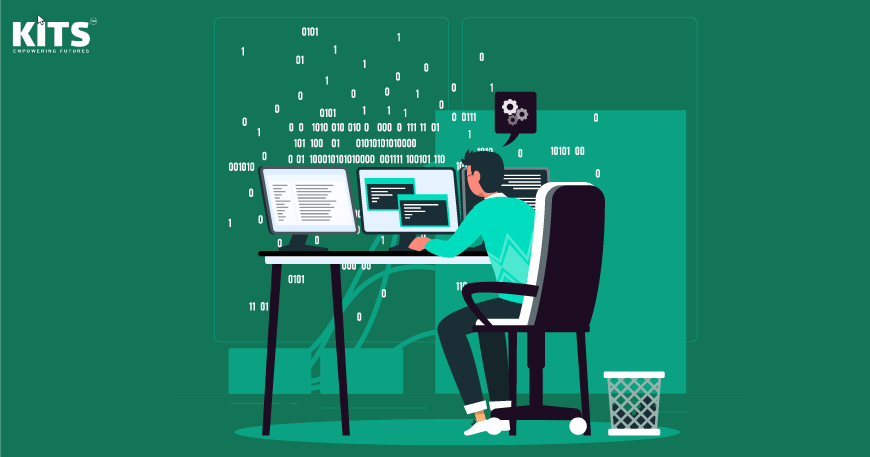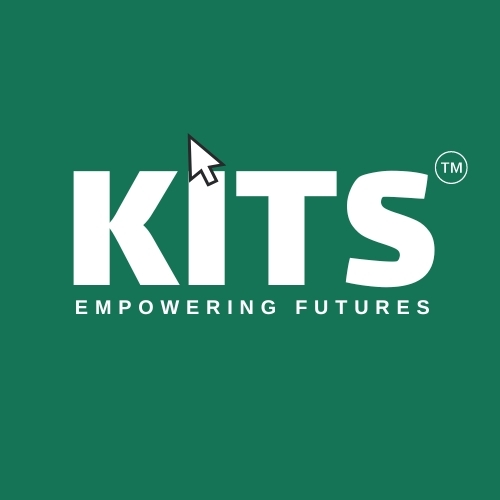Computer programming is one of the most valuable skills today, as computers are used everywhere—in organizations, colleges, and universities. A computer is a machine designed to store and process data, and a programming expert instructs the computer on how to handle and process this data. To become a Programming Expert Like a Professional, you need to understand the fundamentals and core concepts of programming. In this article, we’ll guide you on how to become an expert programmer through structured programming language courses and practical tips.
What Are Programming Languages?
Computers cannot understand natural language by default, though they are increasingly capable of doing so. Fundamentally, computers operate using a series of microscopic on-and-off switches. When we write code, we turn these switches on and off, similar to flipping a light switch. This process utilizes a numerical system called binary, which consists of 1s and 0s, unlike our decimal system, which uses digits from 0 to 9.
There are numerous programming languages, much like the many spoken languages worldwide. Some languages, such as Assembly or C, are very low-level and do not resemble human language. On the other hand, programming languages like Python and Ruby are more akin to human language. These languages serve different purposes; for instance, HTML, CSS, and JavaScript are commonly used for web development, whereas C is often used for writing operating systems.
Programming languages have evolved significantly over time. In the past, programmers used punch cards to input code into computers instead of typing it directly. There are trade-offs between performance and ease of use among programming languages, but when learning to code, it is often beneficial to start with a language that is closer to natural language.
Basics of Programming:
English is the most widely spoken and recognized human language, and it has its own set of grammar rules that must be followed to write correctly. Similarly, other human languages like German and Spanish consist of various elements such as nouns, adjectives, adverbs, prepositions, and conjunctions. In the same way, programming languages are composed of different components. Programming languages have a grammar called syntax, similar to the grammar rules in human languages. There are fundamental coding elements that are essential for all programming languages. The most important basic elements of programming languages include:
- Programming Environment
- Data Types
- Variables
- Keywords
- Logical and Arithmetical Operators
- If-else Conditions
- Loops
- Numbers, Characters, and Arrays
- Functions
- Input and Output Operations
Why Become a Programming Expert?
Programming is the backbone of the tech industry. Here’s why you should consider becoming a programming expert:
1. High Demand: Skilled programmers are in high demand across various industries.
2. Lucrative Salaries: Programming jobs often come with attractive salary packages.
3. Career Flexibility: Programming skills open doors to diverse career opportunities.
4. Innovation and Creativity: Programming allows you to create innovative solutions and products.
5. Problem-Solving Skills: It enhances your analytical and problem-solving abilities.
Steps to Become a Programming Expert Like a Professional
1. Choose the Right Programming Language
The first step is to decide which programming language to learn. This decision depends on your career goals, interests, and the specific industry you want to enter. Here are some popular programming languages and their typical uses:
Python: Great for beginners, widely used in web development, data science, AI, and automation.
JavaScript: Essential for web development, both front-end and back-end.
Java: Popular in enterprise environments, mobile app development (Android), and large systems.
C++: Used in system/software development, game development, and performance-critical applications.
Ruby: Known for web development, especially with the Ruby on Rails framework.
Swift: Used for iOS and macOS app development.
2. Enroll in a Structured Programming Language Course
To become a programming expert like a professional, structured learning is crucial. Here’s why programming language courses are beneficial:
Comprehensive Curriculum: Courses offer a well-rounded syllabus covering fundamentals to advanced topics.
Expert Guidance: Learn from experienced instructors who provide valuable insights and feedback.
Hands-on Projects: Apply what you learn through practical projects and assignments.
Community Support: Engage with peers and instructors for support and collaboration.
3. Practice Regularly
Consistency is key when learning programming. Dedicate time daily or weekly to practice coding. Use online platforms like LeetCode, HackerRank, or Codecademy to solve coding challenges and build your skills.
4. Work on Real-world Projects
Applying your knowledge to real-world projects is essential. Start with simple projects and gradually tackle more complex ones. This not only reinforces your learning but also builds a strong portfolio to showcase your skills.
5. Read and Write Code
Reading other people’s code helps you understand different coding styles and best practices. Contributing to open-source projects is an excellent way to gain experience and collaborate with other developers.
6. Stay Updated with the Latest Trends
The tech industry is dynamic, with new tools and technologies emerging regularly. Follow industry blogs, join online forums, attend webinars, and participate in coding boot camps to stay current with the latest trends and best practices.
7. Network with Other Programmers
Join online communities, attend meetups, and participate in hackathons to connect with other programmers. Networking can provide support, collaboration opportunities, and potential job leads.
Advanced Tips to Become a Programming Expert Like a Professional
1. Master Data Structures and Algorithms
Understanding data structures and algorithms is crucial for writing efficient code. These concepts are fundamental to solving complex problems and are often tested in technical interviews.
2. Learn Version Control Systems
Version control systems like Git are essential for managing code changes and collaborating with other developers. Learning Git and platforms like GitHub or GitLab is a must.
3. Explore Different Development Environments
Familiarize yourself with various development environments and tools. Integrated Development Environments (IDEs) like Visual Studio Code, PyCharm, and IntelliJ IDEA enhance productivity and make coding more efficient.
4. Focus on Code Quality
Write clean, readable, and maintainable code. Follow coding standards and best practices, and use tools like linters and formatters to improve code quality.
5. Engage in Continuous Learning
Technology evolves rapidly, and continuous learning is essential. Take advanced courses, attend workshops, and read books and research papers to deepen your knowledge.
6. Specialize in a Niche
Consider specializing in a specific area, such as web development, data science, AI, cybersecurity, or mobile app development. Specialization can make you an expert in that field and increase your marketability.
7. Seek Mentorship
Having a mentor can accelerate your learning process. A mentor can provide guidance, share industry insights, and help you navigate your career path.
Elevating Technological Development at KITS
Programming plays a crucial role in technological development. While the nature of logic remains constant, the syntax or code evolves. This evolution makes coding easier, enabling programmers to solve more complex problems and create sophisticated programs. As new programming languages emerge, additional functions and blocks of code will be developed based on the needs of computer programmers and analysts. Enhanced gadgets and computer components will continue to advance technology, expanding the scope of programming to new heights. KITS is a leading institution offering programming language courses in Lahore, Pakistan. Whether you’re a beginner or looking to advance your career, our courses provide the knowledge and hands-on experience you need. It provides a focused and professional platform where you can learn the fundamentals of programming and gain hands-on experience in performing programming tasks.
Conclusion
Becoming a programming expert requires dedication, continuous learning, and practical experience. By enrolling in a structured programming language course, practicing regularly, working on real-world projects, and staying updated with industry trends, you can achieve proficiency in programming. Remember, the journey to expertise is a marathon, not a sprint. Keep coding, keep learning, and you’ll eventually become a programming expert. Start your journey today and become a programming expert like a professional with KITS!



